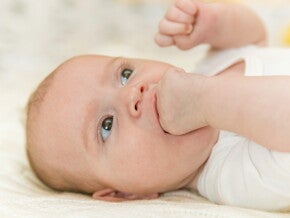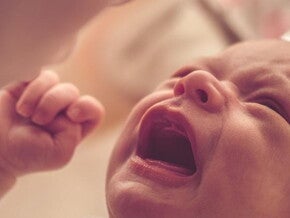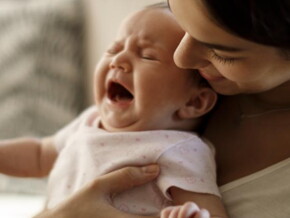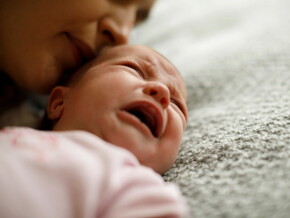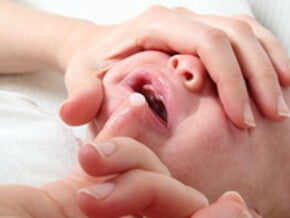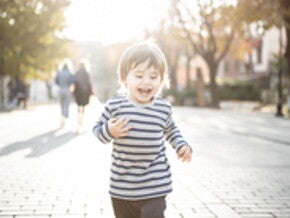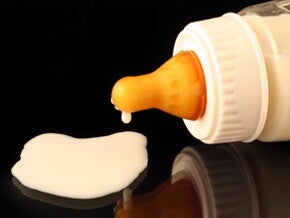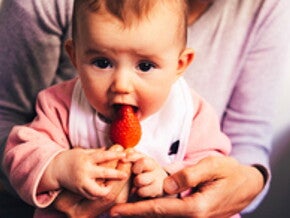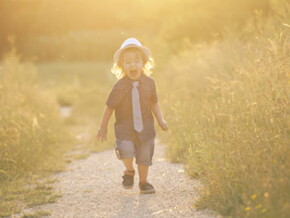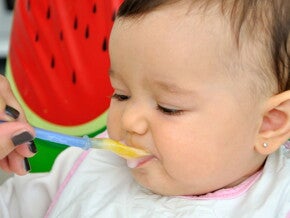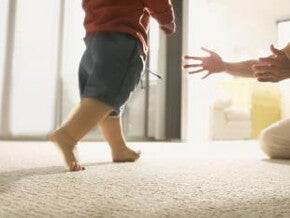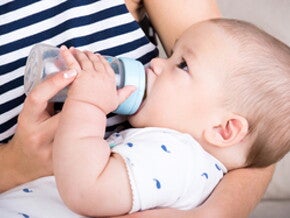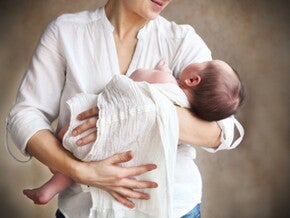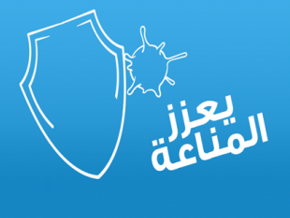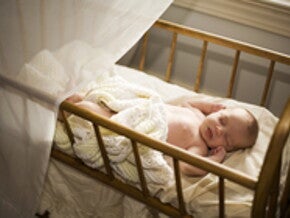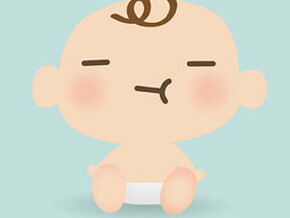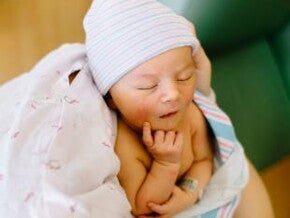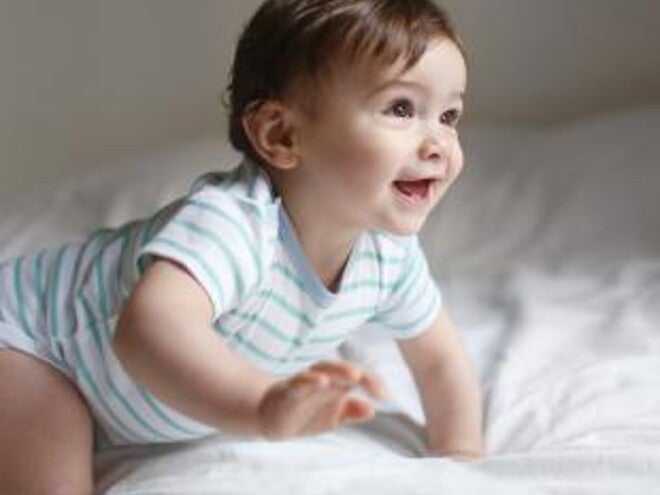
Watch out - diarrhoea!
My baby has had diarrhoea for two days. Is this normal or should I be seriously worried? Is it possible to avoid diarrhoea?
This is a source of common confusion: a breastfed baby has frequent, soft, grainy, yellowish stools. Diarrhoea is quite different and is characterised by very frequent, liquid stools containing no solid matter.
What are the consequences of diarrhoea?
Whatever the cause, viral, bacterial or, for example, due to a food intolerance (cow's milk or gluten), diarrhoea results in a significant loss of water and mineral salts. It therefore presents a serious risk of dehydration. In extreme cases, it can even result in your baby having to be hospitalised. It should therefore always be taken seriously.
How can I tell if it is a serious case?
You don't need to worry too much if your baby just has a little diarrhoea. However, if the diarrhoea is accompanied by certain symptoms, you must take action. Pay particular attention if:
your baby vomits whenever you offer them food or drink,
their mouth is dry,
they are passing stools at least every two or three hours,
their stools contain blood,
they are drowsy, even unresponsive,
they look tired and their skin looks grey.
Keep an eye on their weight. If your child loses at least 5% of their body weight, you must take them to hospital immediately for appropriate treatment.
If you are worried they may be dehydrated: do the pinching-the-skin test, particularly on their stomach. If the pinch remains visible, it means that your baby's body has lost too much fluid. Consult a healthcare professional immediately or take your baby straight to hospital.
Remedies
Is your baby dehydrated? Don't worry, everything will soon be back to normal! How? Follow your healthcare professional's advice, in particular:
Rehydrate your baby with an oral rehydration solution. You can buy sachets at your local pharmacy which you simply dilute in 200 ml of mineral water and which provide your baby with water as well as mineral salts and sugar, which encourage absorption of the solution and limit the risk of vomiting. Ideally, give your baby 5 ml every 5 minutes, as often as possible. If you are breastfeeding, continue breastfeeding after rehydration.
Bottle-fed newborn babies can continue regular bottle-feeding with formula after a few hours.
If your baby has started to eat solids: encourage foods such as rice, cooked carrots, pasta, cooked fruits (bananas, quinces, apples) which are effective against diarrhoea.
Finally, wash your hands often and systematically whenever you change your baby's nappy, as some forms of diarrhoea are contagious and, as a parent, you need to stay fit in order to look after your baby!
Opinion
Paul, father of Théo , 5 months old:
" Théo caught a stomach bug and had diarrhoea for 2 days, as well as a fever. My wife was away on business. I took him to the doctor's straight away. Thanks to the rehydration solution I gave him, he got better as quickly as he had fallen sick and by the time his mother returned, he was as right as rain!"


